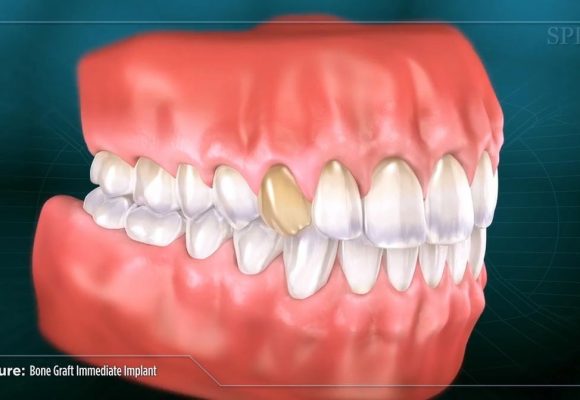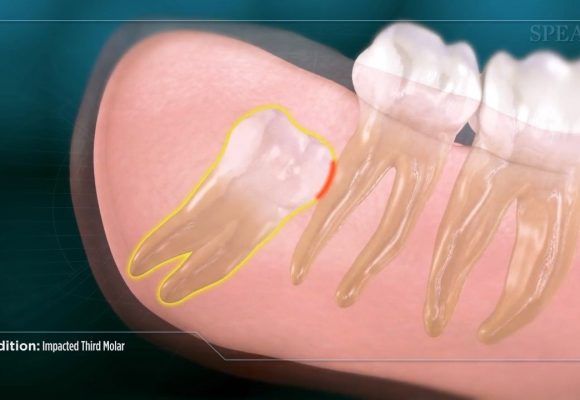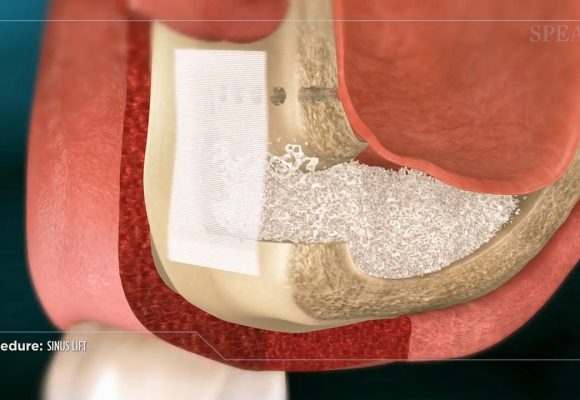Sometimes, even after an endodontic treatment (a root canal treatment) is performed on a tooth, an infection may remain at the end of the root. Symptoms of an infection include throbbing toothache, sensitivity to heat and tenderness when chewing. This can spread to fever, swollen lymph nodes and sinus pain. If left untreated, this can lead to loss of the tooth and spread of infection throughout your body.
During an apical resection, your dentist accesses the infection by making a small opening above the tooth. The infected tissue is removed and the tip of the root is removed to remove any additional infection. The opening is then cleaned and filled and the area is closed and left to heal. Healing for an apical resection depends on the severity of the infection and can range from months to a year. After the infection is removed and the root is resealed, the tooth is preserved and restored to health.
Related Articles

Bone Graft with Immediate Implant Placement
In cases where a tooth is lost and a dental implant is needed, your doctor…
Read more
Impacted Third Molar
Typically in the late teens to early twenties, the third set of molars, or wisdom…
Read more
